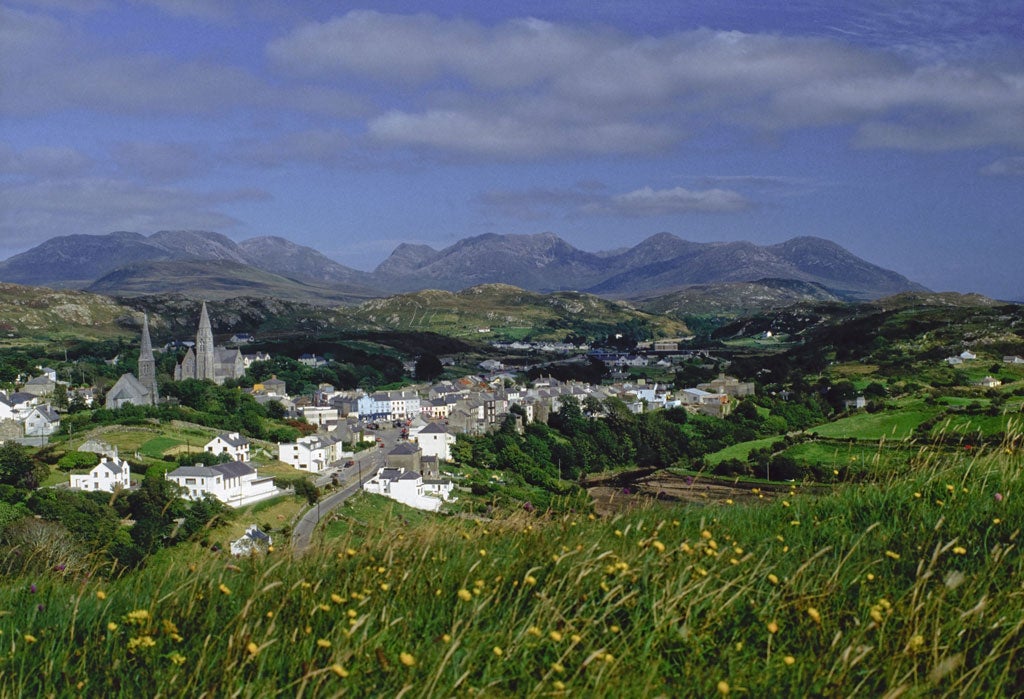Connemara: A Little Gaelic Kingdom, By Tim Robinson

This is the final work in Tim Robinson's Connemara trilogy, and completes his breathtakingly intricate journey through the Irish peninsula. "Every tale entails the tale of its own making," he remarks in the penultimate sentence, and in the case of A Little Gaelic Kingdom, this is a tale of tirelessly walking through, looking at, and listening to Connemara.
As in his earlier books, Listening to the Wind and The Last Pool of Darkness, Connemara is not just a landscape but a densely populated world – a little Gaelic kingdom, full of people and their stories. Robinson tracks the land, travelling not simply overthe hills and across the bogs and along the cliffs, but also down into the culture of these places. "I have note of hundreds of placenames," he writes, "legends of saints and strong men of ancient times, curious incidents unforgotten through the centuries – but how do I link them together?"
He weaves them into a rolling narrative that flows and eddies like the sea washing the coastline. Accounts of vivid individuals, tight-knit families, and regional politics brush shoulders with the anonymous men, women, and children who might have named a saint's well here, or left a song or a pile of rocks there. Robinson's writing describes the meeting between memory and history, where gossip is transmuted into folklore. It is a travelogue through the "provinces of a dream-kingdom", a memoir of the spirit of place.
Much of his raw material derives from the suggestive poetry of the Gaelic language, and Connemara flies, he comments, on the "bedraggled wings" of language and landscape. Robinson, originally from Yorkshire, has learnt Irish, and digs into it like a linguistic archaeologist. "Of all the words in the Irish language the most potent are sean, old, and siar, westwards or backwards in time or space. Some might say they are the two great bugbears of the nation, but I have written this book to celebrate their unquenched energy and mutual intrication." His training as a mathematician also enriches hisvocabulary. He becomes fascinated by the science of fractals and the impossibility of mapping or measuring a coastline: on the islands and peninsulas, "topography splashes like a child in the sea and revels in a complexity that seems to call for the language of mathematics rather than either English or Irish".
At the same time, Robinson is alive to the supernatural features of Connemara. Pots of gold litter the landscape (or at least are buried in its folklore). He encounters the fairy horde and hears a turf-cutter describe a fairy mass, the story arresting him "like a dispensation from the forced march of time". He hears ghostly voices and sees a divinatory fish in the last well on the saints' march: "I felt I had never come so close to magic."
These mysteries remain mysterious. The older world of Connemara is slipping into this other world of ghosts and fairies as modernity and technology creep across the West of Ireland. Eventually the two will be indistinguishable, subsisting only "in nettly banks and briary ditches in the interstices of the modern".' It is because the land can't be fully mapped (certainly not the Ordnance Survey) that these remnants of belief and lore will survive in chinks and on the edge of memory.
Tim Robinson has taken his time over Connemara. He has neither explained away the enchantment of the place, nor tried to deepen its allure through cheap sentimentalisation. "Often when visitors ask me what they should see in this region I am at a loss. A curious hole in the ground? The memory of an old song about a drowning? Ultimately I have to tell them that this is a land without shortcuts."As such, it is captivating.
Subscribe to Independent Premium to bookmark this article
Want to bookmark your favourite articles and stories to read or reference later? Start your Independent Premium subscription today.

Join our commenting forum
Join thought-provoking conversations, follow other Independent readers and see their replies